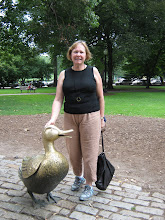So, instead Year 2 classes and I have shared books where the theme of Book Week, Reading is my secret power and the theme of the power of reading has opened their eyes and mouths to just what reading or the lack of it means. We have had lots of lively debate, some good personal reflection and connections and lots of questions. All good.
 Firstly, we read that wonderful book by Nadia Wheatley, The Greatest Gift of Charlemagne the King. Why is it out of print? The debate at the end of this story about what the greatest gift is always amazes me. The students fall into three camps, those who think it is the book, those who think it is the library and those who think it is the ability to read. Remember these animated students are 7 or 8 and they are loudly and vehemently stating their case.
Firstly, we read that wonderful book by Nadia Wheatley, The Greatest Gift of Charlemagne the King. Why is it out of print? The debate at the end of this story about what the greatest gift is always amazes me. The students fall into three camps, those who think it is the book, those who think it is the library and those who think it is the ability to read. Remember these animated students are 7 or 8 and they are loudly and vehemently stating their case.Secondly, we read Nasreen's Secret School by Jeanette Winter. I stopped at the part where it says the girls were not allowed to go to school and separated the students into boys and girls. The boys were asked to discuss what they thought it would be like to have no girls in the class. The girls were asked to discuss what they thought it would be like to stay home from school every day. Four different Year 2 classes all had very different views on this. We then kept reading and discussed at the end what would happen long term without schools.
 Thirdly, we read Ruby's Wish by Shirin Yim Bridges which continued this theme of education only for boys. The girls in particular had very little difficulty putting themselves in Ruby's shoes and had lots to say about being excluded from a university education. I paired this with The Girl Who Buried her Dreams in a Can an autobiographical picture book by Tererai Trent so that the students realised that this is not a phenomena applicable only in Ancient China or Afghanistan, but also happened in parts of Africa.
Thirdly, we read Ruby's Wish by Shirin Yim Bridges which continued this theme of education only for boys. The girls in particular had very little difficulty putting themselves in Ruby's shoes and had lots to say about being excluded from a university education. I paired this with The Girl Who Buried her Dreams in a Can an autobiographical picture book by Tererai Trent so that the students realised that this is not a phenomena applicable only in Ancient China or Afghanistan, but also happened in parts of Africa.We haven't read these two books yet, but I plan to also share with the students what happens when learning to read is not easy or doesn't happen when you're young, by sharing Patricia Polacco's Thank You, Mr Falker and Amy Hest's Mr George Baker.

